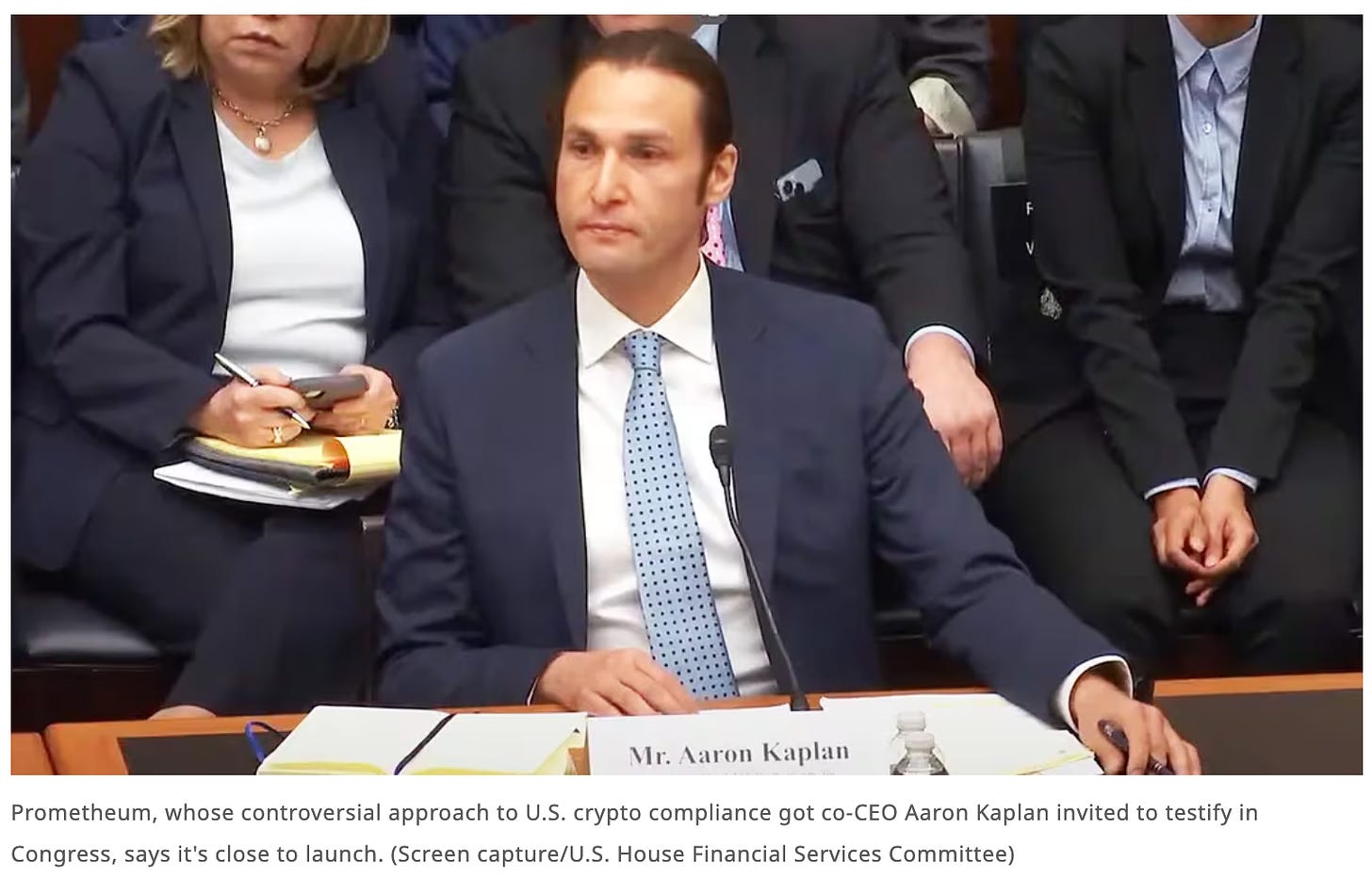US Crypto Regulations Actually Exist? (For Brokers, Yes)
Convince Me Podcast #8 with Aaron Kaplan at Prometheum
The recent presidential election has led to an absolute rip in Bitcoin price, as market participants expect the new regime to be much more accommodating to the asset class.
With this renewed interest, there will likely be a period of taking a look at what US regulation currently exists (or does not exist).
SPBD - US crypto regs for exchanges/brokers
One piece of regulation (that actually *does* exist) is the Special Purpose Broker Dealer (SPBD) license. This set of regulations are constructed specifically for crypto broker dealers, and primarily focuses on how their custody should be structured.
Here is a link to the SPBD regs
Here’s my brief summary:
SPBDs should maintain “full control” of custody of assets at all times.
“Full control” is not defined in the document. There are nuances to crypto custody where simply stating “full control” is not sufficient, in my opinion. Also, there are custody technologies that can be leveraged which may appear to a regulator as lacking “full control”, but would be much safer for users.
For example, the industry standard for custody at this point is MPC (Multi Party Computation). Using MPC can allow transaction policies to be distributed across both the broker and a third party entity. I personally think this is safer than a single entity maintaining control over the entire life cycle of a private key (the thing that custodies assets).
SPBDs can only allow trading of crypto assets, and not give access to non-crypto assets.
Hopefully this changes quickly. Now that we have the various Bitcoin ETFs, it makes sense for crypto brokers to be able to give access both to spot digital assets as well as traditional instruments (like ETFs).
With these notes on how I think the regs can be improved in mind, I actually think that these were constructed in relatively good faith. The crypto industry loves to take shots at the SEC (it has been incredibly challenging to navigate the US regulatory landscape in crypto). But I think these SPBD regs were written in such a way that it tells me there are elements within the US regulatory apparatus who are prepared to engage with the crypto industry in a constructive way. I think they show a strong degree of thoughtfulness, especially considering they were written in 2020/2021.
Our conversation with Prometheum
Prometheum is a US SPBD. One of the only US SPBDs.
Their CEO, Aaron Kaplan, caught a lot of flack from the crypto industry when he testified before Congress a little over a year ago. The industry dog-piled on him, when he supported US regulations over the industry.
From my read… I think our industry unfairly jumped on Aaron and Prometheum.
They simply stated there are, in fact, regulations that exist in the US. This is true. The SPBD license is law.
Can the regs be improved? Definitely. But Prometheum didn’t write the law.
You can check out more of the conversation in the full podcast here:
If you prefer short form videos. Here are a few hi-lights:
Disclaimer
We, Digital Opportunities Group, LLC, are not providing investment or other advice. Nothing that we post on Substack should be construed as personalized investment advice or a recommendation that you buy, sell, or hold any security or other investment or that you pursue any investment style or strategy.
Case studies may be included for informational purposes only and are provided as a general overview of our general investment process. We have compiled our research in good faith and use reasonable efforts to include accurate and up-to-date information. In no event should we be responsible or liable for the correctness of any such research or for any damage or lost opportunities resulting from use of our data.
We are not responsible for the content of any third-party websites and we do not endorse the products, services, or investment recommendations described or offered in third-party social media posts and websites.
Nothing we post on Substack should be construed as, and may not be used in connection with, an offer to sell, or a solicitation of an offer to buy or hold, an interest in any security or investment product.





